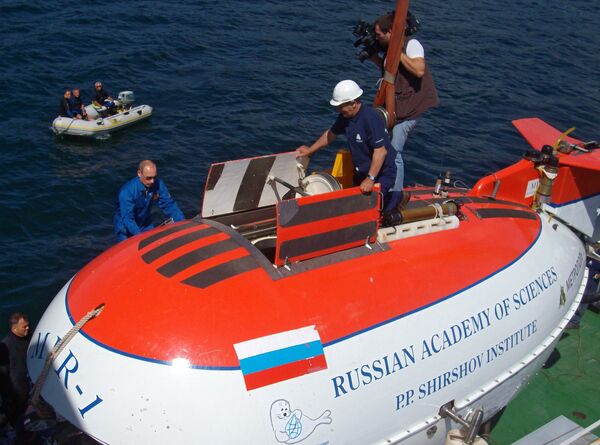Russian Mir submersibles will start the third stage of an international research expedition of Lake Baikal, the world's deepest freshwater lake, on July 1, the government of Buryatia, a republic in south Siberia, said on its website Thursday.
The Mir-1 and Mir-2 mini-subs will make some 60 dives in the western, central and southern parts of the lake and will explore Baikal's fauna, archeological objects, underwater mud volcanoes and tectonic activity on the lake bottom.
U.S., Canadian, and European scientists will join the expedition in early August.
"Initially, the expedition on Baikal was not planned in 2010 as the submersibles were expected to work in the Atlantic Ocean. But the analysis of 2008-2009 research data proved that many questions regarding the lake's research remain open," the government said.
In 2008 and 2009, Mir-1 and Mir-2 explored Baikal and studied its flora and fauna, and hydrothermal and volcanic activity, as well as seeking more precise data on tectonic processes under the lake.
Baikal, called the Sacred Sea by locals for its size and beauty, is the world's oldest and deepest freshwater lake estimated to be 25 million years old. It holds around 20% of the planet's fresh water and is home to hundreds of unique species of fauna and flora.
NOVOSIBIRSK, June 17 (RIA Novosti)


